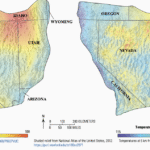The Future of Grid Management: How Power Engineering is Revolutionizing the Industry
The grid management system is the backbone of modern power distribution. However, with the increasing demands of renewable energy, grid modernization, and advanced technologies, the industry is facing significant challenges. The future of grid management relies heavily on the development and integration of innovative solutions. In this article, we will explore the advancements and future prospects of grid management, highlighting the role of power engineering in shaping the industry’s trajectory.
Smart Grids: The Cornerstone of Grid Management
The concept of smart grids is built around the idea of leveraging advanced technologies to enhance grid efficiency, reliability, and sustainability. This is achieved through the integration of renewable energy sources, advanced metering infrastructure, and sophisticated grid management systems.
Real-Time Monitoring and Predictive Analytics
Smart grids employ real-time monitoring systems to track grid conditions, weather patterns, and demand response. This information is then used to predict potential grid disruptions and take proactive measures to mitigate them.
Grid Automation and Remote Control
Advanced automation systems enable utilities to remotely control grid operations, reducing manual errors and increasing efficiency. This allows for faster response times and improved grid resilience.
Retail Energy Market Platforms
Retail energy market platforms facilitate the integration of renewable energy sources, enabling customers to buy and sell excess energy. This promotes a cleaner, more sustainable energy landscape.
The Role of Power Engineering in Grid Management
Power engineering plays a vital role in the development and integration of smart grid technologies. Power engineers are responsible for designing, building, and maintaining the grid infrastructure, as well as developing advanced software and hardware solutions.
Power engineers are involved in grid planning and design, ensuring that the grid is scalable, reliable, and resilient. They use advanced simulation tools and modeling techniques to optimize grid performance.
Power engineers design and implement grid automation systems, ensuring seamless control and monitoring of grid operations. They also develop advanced control algorithms to optimize grid performance.
The Impact of Digital Transformation on Grid Management
The rise of digital technologies has significantly impacted the grid management landscape. The integration of data analytics, artificial intelligence, and the Internet of Things (IoT) is transforming the way utilities manage their grids.
Data-Driven Decision Making
Data analytics enable utilities to make data-driven decisions, improving grid operations and reducing costs. This is achieved through advanced data visualization, predictive modeling, and real-time monitoring.
IoT and Edge Computing
The integration of IoT and edge computing enables utilities to process large amounts of data in real-time, reducing latency and improving grid reliability. This also enables predictive maintenance and fault detection.
The Future of Grid Management
The future of grid management is poised for significant changes. The integration of advanced technologies, such as artificial intelligence, blockchain, and edge computing, will further transform the industry.
Advanced Energy Storage
Advanced energy storage systems will play a crucial role in grid management, enabling utilities to store excess energy generated from renewable sources and reduce grid instability.
The integration of grid-hydrogen systems will enable utilities to store excess energy in the form of hydrogen, providing a clean and reliable energy source.
Conclusion
In conclusion, the future of grid management is built around the integration of advanced technologies and innovative solutions. Power engineering plays a vital role in designing, building, and maintaining the grid infrastructure, as well as developing advanced software and hardware solutions.
FAQs
Q: What is the significance of smart grids in grid management?
A: Smart grids enable real-time monitoring, predictive analytics, and advanced automation, leading to improved grid efficiency, reliability, and sustainability.
Q: How do power engineers contribute to grid management?
A: Power engineers design, build, and maintain grid infrastructure, develop advanced software and hardware solutions, and optimize grid performance through simulation and modeling techniques.
Q: What is the role of data analytics in grid management?
A: Data analytics enables utilities to make data-driven decisions, improving grid operations and reducing costs, through advanced data visualization, predictive modeling, and real-time monitoring.
Q: What are the benefits of grid-hydrogen integration?
A: Grid-hydrogen integration enables utilities to store excess energy in the form of hydrogen, providing a clean and reliable energy source, and reducing grid instability.





.png?w=150&resize=150,150&ssl=1)

